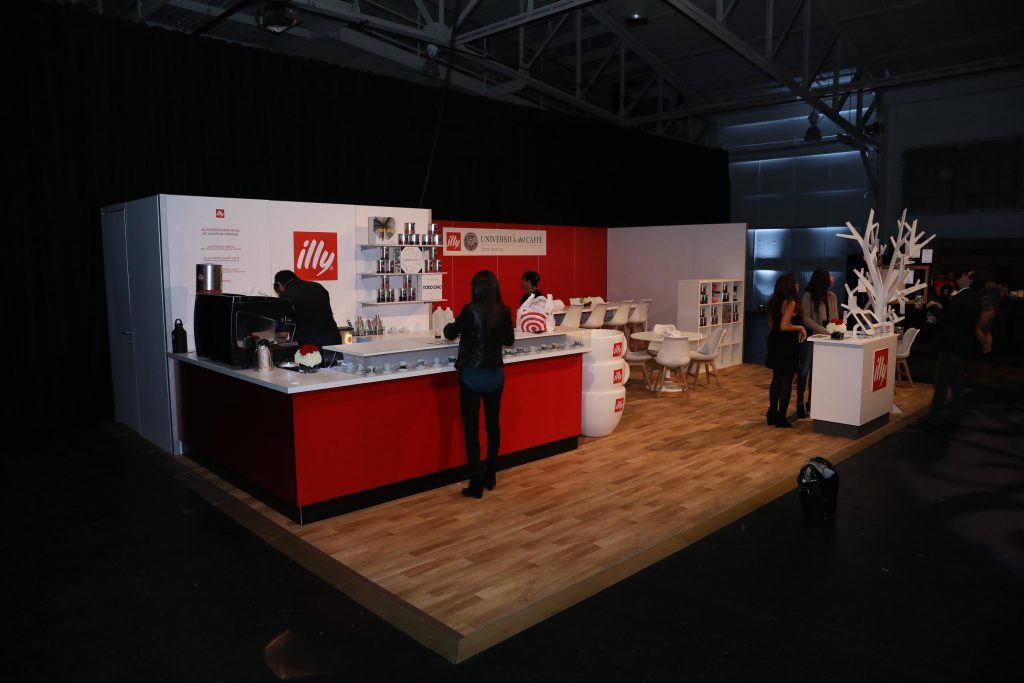Experiential events are an effective way to engage an audience and build both brand recognition and brand loyalty. Attendees at these events love to share their experiences on social media, and these events often have viral potential. For all these reasons and more, an experiential event could be a fantastic move for your company. But first, you have to get your stakeholders on board and get their approval for the project. Here are the steps you’ll need to follow to secure that essential stakeholder buy in.
1. Make an Appointment
Your first step in getting stakeholder buy in is to make an appointment, and that’s essential for several reasons:
- It shows you’re taking the project seriously – If you just pitch your idea in the lunchroom or hallway, it doesn’t impart the gravity the situation deserves. And if you’re not taking it seriously, why should anyone else?
- You need to make sure all key stakeholders and decision-makers are present – Don’t assume that anyone who isn’t there can get filled in later. If that does happen, people who missed the meeting won’t get all the information you need them to have. This is particularly important if there are important stakeholders outside the company, in addition to internal stakeholders.
- You need to be able to counter any resistance with the hard facts that will sell your idea – You can’t do that if the person who objects isn’t there. When you make the appointment, make a point of asking that all stakeholders be present.
2. Know Your Targets
Start your plan of attack by researching every stakeholder who’s going to be present at the meeting. You need to know who they are. This means things like their job title and description, and how those relate to your project. Where are they—relative to you—in the chain of command?
Check out online profiles on LinkedIn and social media to try and get a read on their personality. Talk to their assistants and see if they can provide any clues.
You can branch off from this stakeholder analysis to work out which stakeholders are most likely to approve of your idea, and who may oppose it. Of those who might be in opposition, can you deduce why? Once you think you have a good handle on who the naysayers might be, you can prepare evidence that supports your position. Ideally, you’ll be able to them that you’ve already thought of—and solved—the problems they raise.
3. Gather Your Proof
As you get to know your targets, you’ll also start working on your pitch. This means combing through data, case studies, and other materials for evidence that supports your position. This is vitally important because without it, you’re just a person with an opinion. You can’t expect to earn stakeholder buy in based on an opinion: You need facts that show exactly why an experiential event is a good idea.
- Statistics: Look for stats that show that experiential marketing is a sound concept. You don’t need to get heavily into specifics here. You just need to be able to show stakeholders that experiential events are effective.
- Case studies: Look for case studies on companies that are similar in size and scope to your own, in a similar industry niche, and/or with similar audience demographics. This will help show that an audience already exists for your own company to tap into.
- Proof of ROI: When you’re talking to project stakeholders, your focus should be firmly on ROI. There are other factors that are important in experiential marketing, but stakeholders specifically want to know how the event will pay off. That means revenue and ROI.
4. Connect Your Pitch to Core Company Goals
Once you’ve made the case for experiential events, you must make the case that an experiential event is a good move for your company. To do this, you’ll pinpoint core company goals, strategies, and values, and show how an experiential event is a good fit. This aspect of your pitch depends on the nature of your company. In general, you’ll want to focus on tangible ways an experiential event can benefit the company, while aligning with its core values. You should also show how your project’s goals align with those of the company.

5. Show Why Experiential Marketing is Different
What can an experiential event do for your company that no other form of marketing can do? What benefits does an experiential event have that your company isn’t already realizing from other forms of marketing? Along with showing why experiential events are beneficial, you also have to sell their unique benefits—those rewards that won’t come via any other marketing strategy.
If your company’s target demographic is Millennials, for instance, you have the perfect proof: This particular generation is widely regarded as one that values experiences over possessions and has a clear preference for brands they perceive as honest and authentic. These are all traits that an experiential event is uniquely placed to display.
6. Anticipate Stakeholder Resistance
Not every stakeholder is going to immediately buy in to your pitch. You’re almost certain to get at least one person who’s not convinced. They might have some genuine questions, or they might be someone who’s opposed to change for its own sake. Either way, you have to prepare for some resistance. This is where researching your stakeholders can pay off.
One strategy that can work is to bring up likely problems before anyone else does. For instance, if you think someone’s likely to suggest that experiential marketing is too expensive, bring up the issue yourself. Point out that it can be costly, and then show examples of companies that have held successful experiential events on smaller budgets.
7. Provide Multiple Options
Never go into a stakeholder meeting with only a single budget option prepared. If you do this, you always run the risk of getting an outright “no” that closes down your project for good. Instead, prepare three budgets at three different price points: One high, one medium, one low.
Don’t be tempted to artificially inflate your highest option to make the others look better. Chances are, they’ll see right through your attempt. Instead, present three realistic packages that genuinely reflect three different experiential event possibilities. Make sure the least expensive option reflects a project you’re actually willing to follow through on. Don’t lowball it so much that it becomes too difficult to make a good event out of it. That way, any of the three options gives you the potential for a good result.
8. Provide Hard Copies
Don’t forget to provide everyone with hard copies of all your data. Go the extra mile, and create folders for every attendee, with copies of your most important case studies, statistics, and other key points. This will help everyone follow your presentation during the meeting and give them something to refer to afterwards.
9. Follow Up
Make sure to follow up with stakeholders after the meeting. Send each attendee a personal email, thanking them for their time and letting them know you’re available to answer any questions they have.
Secure That All-Important Stakeholder Buy In with Solid Preparation
Experiential marketing is a major trend in the world of events, but that doesn’t mean your stakeholders will automatically think it’s a great idea. You have to show them why it works and why it will work for your company. As with most things, preparation is key to the success of the project and key to helping you earn stakeholder buy in.









